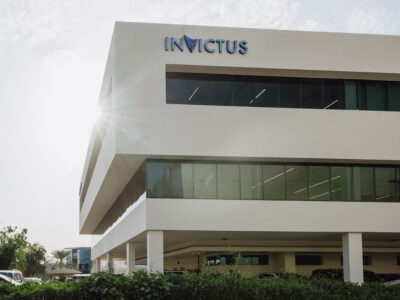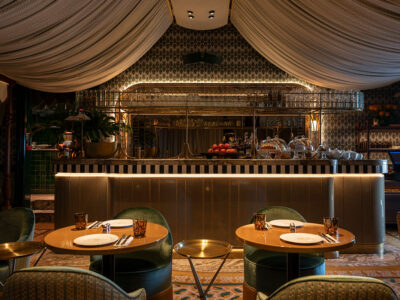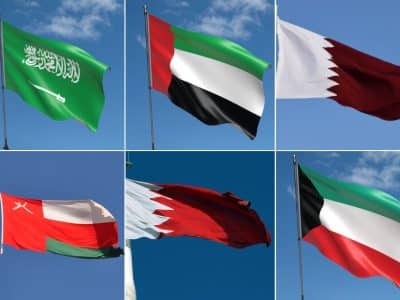Ever since it was founded more than 25 years ago, CKR Consulting Engineers has strived to be synonymous with excellence in its delivery of high-quality MEP projects. Whether it is the largest of luxury hotels or the smallest of retail retrofits, its company ethos is to treat each project as if it was its own.
A South African owned and operated firm, CKR Consulting began operations in 1983. Since then it has grown into a multi-national company that has offices all across South Africa, in Dubai and in India.
The consultancy recently opened up a second office in India, this time in Kerala, as it seeks to tap into the rapidly growing and lucrative Indian construction market. As that branch of the firm continues to find its feet and grab on to the lucrative contracts available, CKR is in the final steps of finalising plans to open a new office in Doha, which will be operational by March 2012.
Furthermore, having made its name in developing MEP designs for an array of luxury hotels, the consultant plans to spend 2012 delving further into the MEP services sector. As a result, there has been an increased focus by the firm to develop data centres and infrastructure projects.
The man behind this constant evolution is Stefano Riccardi, the committed and driven visionary who helped found, and latterly, overseen the growth of the company since 1995.
An electrical engineer by trade, Riccardi was educated at the University of Witwatersrand in Johannesburg, where he graduated with a Bachelor of Science in Electrical Engineering.
Within two years of joining CKR as a project engineer, he was made partner before eventually taking over as managing director after a couple of the other partners left the firm in 1998.
Since then, he has helped the firm grow from 15 employees, to almost double that figure by 2000.
“Thereafter, we got an opportunity to come to Dubai. That company was started in 2001 and now Dubai alone boasts more than 60 odd people. In South Africa, we’ve got four branches as well, with a total staff content of around 150,” Riccardi says.
Moving into data centres is not as much of a dramatic switch as it could be construed, he says, because of the previous work CKR has done on luxury hotels.
“Hotels have ELV services that go into them. A large part of the time, you end up creating mini-data centres to manage these ELV and RT environments for the hotel. For instance, the likes of the Madinat Jumeirah has got two large server rooms which fall over and have redundancy between one and the other. So you can call it the start of a major data centre.”
“What you find is that a lot of the data centres that are out there, they don’t have good efficiencies, or have outdated equipment and very large power generators. What we’ve found is that by going to these environments and increasing efficiencies, we’ve found that for a large part of the time we don’t have to apply additional electricity or additional air conditioning for these data centres. Just by making the equipment more efficient, we can save the client a lot of money. In the sense that his payback for the equipment installation is likely to be reduced by four to five years,” Riccardi explains.
Article continued on next pape…
An electrical engineer at heart, Riccardi says that his ambitions for CKR centre on the fact that the consultancy has to embrace a philosophy of flexibility when it comes to approaching new projects. Although this is based around an enforced change that came about when the financial crisis hit, he asserts that it has paid dividends for the company, allowing it be profitable at a time when a number of its competitors were struggling to break even.
“We had to re-engineer ourselves and we had to re-engineer projects and make them more financially feasible. Cutting out non-essentials so that clients got the full benefit of their capital input (was vital). At the same time, (we had to) delve into new market places and take on certain projects that previously we might not have given as much attention to.”
“We created those as our core focuses, things like maintenance projects, going into environments such as existing buildings and creating efficiencies. (This was important), because if you can create paybacks for those specific projects, then they don’t become capital intensive projects, which are a lot more difficult to find out here. Instead, they can be completed out of a client’s maintenance budget, and we found that that form of income was more readily available to us,” he says as he outlines his strategy.
“You’ve got to be flexible. Yes, we’ve put policies and procedures in place, for good reason, but you’ve got to be able to move quickly and at times, you’ve got to be able to adapt to you environment. Sometimes, you need to do things that you don’t necessarily like doing.”
“You’ve still got to run a tight ship, but you’ve got to be able to diversify your staff, in terms of diversifying their abilities so that they can move through different spheres of work. Without that ‘heart and skin’ there, especially in these challenging times, it’s a totally different game,” he warns ominously.
Another issue he says he sees is that a number of MEP companies don’t think about is how the market has changed since the advent of the downturn. While it was once acceptable to have a 10 year plan, consultants and contractors now have to start thinking in terms of shorter time scales.
“Previously, you used to be asked the question, ‘where do you see yourself in 10 years?’ Nowadays, you need to ask your staff, and ask yourself, ‘where do you see yourself in three years time?’ I ask myself this continuously, because the world is moving so fast, that while you’d like to plan 10 years ahead, that 10 years has become equivalent to a three year plan.”
With this in mind, Riccardi says that CKR has begun implementing what he calls a ‘Silo’ business plan. This means that while each office would have location specific management, the offices, or ‘silos’ would be brought closer together at management level.
“We need to get more efficient, which basically means that we’re looking at doing certain core engineering functions, out of our India office for instance, and we need to be closer at management level. This is because examples learnt in one environment can be passed onto other environments as quickly as possible,” he says.
By creating a ‘centre of competency’, so to speak, Riccardi hopes to be able to promote cross pollination from various practices. To this end, he has promoted the movement of engineers from one company into another company, from one office to another office, in order for them to get on the job training in specific environments.
Article continued on next pape…
The success of such a strategy depends heavily on identifying the right employees to take up the responsibilities. By empowering the local personnel in the region, CKR is able to make use of employees who have extensive knowledge of different environments, while being well versed in the company’s high standards.
Although he freely admits that such a methodical and thorough strategy has hindered the pace of CKR’s expansion, he remains unrepentant about it.
“If we’d gone with a more aggressive positional policy, we would have been able to grow a lot quicker. But we felt that growth wasn’t as important as keeping to the company ethos and maintaining the right culture all the way through. We pride ourselves on our project management abilities while completing client’s projects.”
“Since our inception, we’re gone on organic growth as a company. We don’t say that we won’t consider acquiring other businesses if it makes sense to, but we feel very strongly about having the people who’ve grown up in our culture being able to take our business out into other areas.”
Of those ‘other areas’, the GCC remains of strong interest to him and his partners at the MEP consultancy. According to Riccardi, revenue for the company went up by about 13% in 2011, in comparison to the previous year’s figures. Profitability increased by about 5% as well, he adds.
This increase was led by the GCC region, he says, with about 60% of that revenue increase being driven by the GCC and the UAE in particular.
As such, with plans for the Qatar office in full swing, the target markets for the coming year include Saudi Arabia, Abu Dhabi, Qatar obviously, and the oft ignored state of Bahrain.
“Bahrain, we do understand that a lot of the politics over there (have been sensitive) over the last year, but we see it as an opportunity as well.”
“Our perspective is that it’s a pretty stable country, yes, they’ve had their slight setbacks, but I think they’ll be strong enough to go forwards in the future. It was a target a few years back but because of the booms that happened in Dubai and Abu Dhabi, I suppose we really haven’t had the right people to take it forward. Now that we have a little bit more time on our hands to plan things a little bit better, it’s going to be in our strategies.”
“As for Qatar, we’re finalising our sponsorship deal at this point in time. It would be adding an additional shareholder to our company in the area, but with the strong sponsor that we have, I see the potential growth spreading to other regions as well, simply because of the sponsors influence.”
Article continued on next pape…
However, what he remains most excited about is the potential that Qatar offers over the next 10 years, with the build up to the 2022 FIFA World Cup under way. Having seen firsthand the benefits that South Africa gained from its own World Cup, Riccardi sees Qatar as being an even bigger opportunity for his company.
“During the build up to the 2010 World Cup, there was exponential growth that happened in South Africa because of the construction related activity around the World Cup. We see Qatar as being one of the growth regions that is going to contribute exponentially to the company’s growth, and as well, to the Middle East and other regions that will also grow. Maybe not as fast as Qatar, but they’ll certainly still grow,” he explains.
Looking at the shorter term though, and Riccardi predicts that while 2012 will present a number of challenges, he sees it as being a good year for MEP companies that offer ‘niche’ or ‘specialised’ services to clients.
“The growth would be in the specialist RT market, the specialist ELV markets and the specialist MEP markets. There is a much bigger need now, I believe, for niche MEP consultants and specialist MEP contractors, as opposed to those churning out the huge projects. If you don’t have the relevant expertise, including in terms of specialist lighting and energy related activities, you’re going to suffer in this marketplace going forwards.”
“So, I would say, that the outlook for this place (the GCC), it’s likely to be a good year for specialist MEP companies,” he says with confidence.
With CKR looking to improve on last year’s revenue performance, aiming to grow by 15%, Riccardi adds that he hopes to push profitability up by a further 5% on last year.
However despite his optimism, he does sound a note of caution, warning that getting the right projects meant that MEP companies had to approach the right clientele. He stresses the important of learning the lessons he has, which were: ‘no matter how good you think you are, at the end of the day, you need to know the people out there, you need to market yourself properly and you need to have that exposure’.
This certainly doesn’t seem to be a problem for his company any more, with Riccardi asserting that the move towards being more flexible has paid huge dividends, especially since they now have brand recognition in both the retail and luxury hotel sectors, meaning they’re often the first choice when it comes to retrofits or upgrades, ensuring a steady supply of income, even in the worst of times.
“As a company, we’ve been fortunate. We’ve got through the hard times and we’ve being doing a lot of small projects. And though I say small projects, they’re for the Al Tayer Group, and we’ve been involved in their Gucci stores, their Prada and Ferrari stores, so there are about 12 brands that we roll out for the Al Tayer Group, which will sustain us as we go forwards.”
“In addition, there’s also the Southern Sun Group, where we’ve worked for them for probably the last 15 to 18 years in South Africa. They’re looking at expanding into various GCC countries and we’re fortunate that we’ve got a fantastic relationship with them as well. They talk to us continuously, so (we think) there will be new projects starting very shortly,” he says, dropping a tantilising hint as he signs off.








